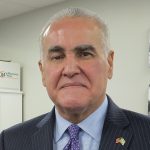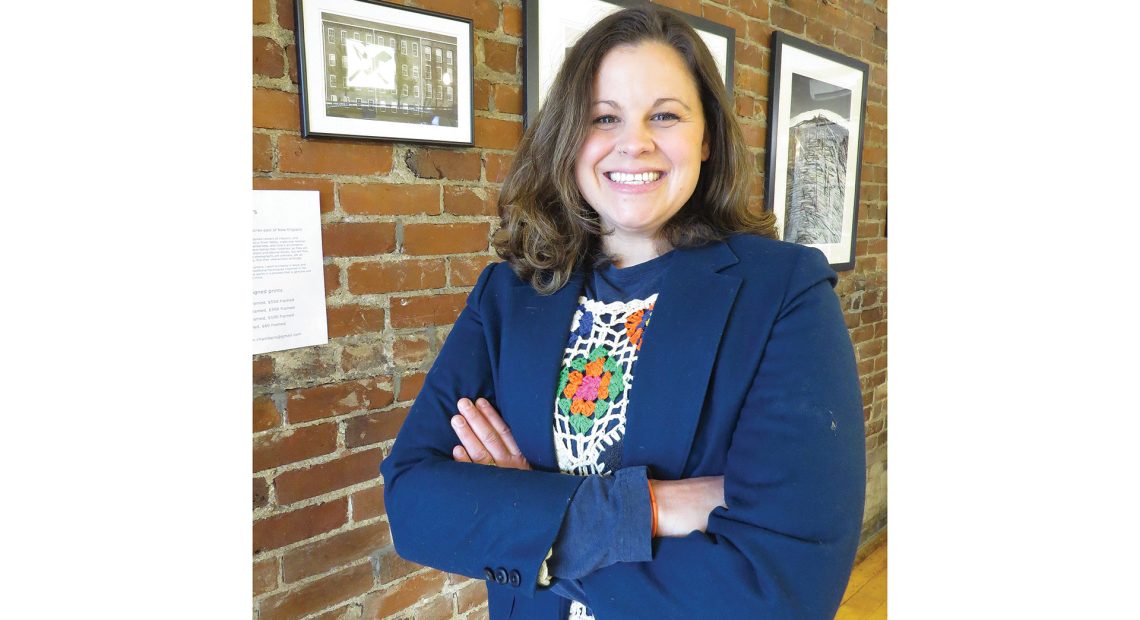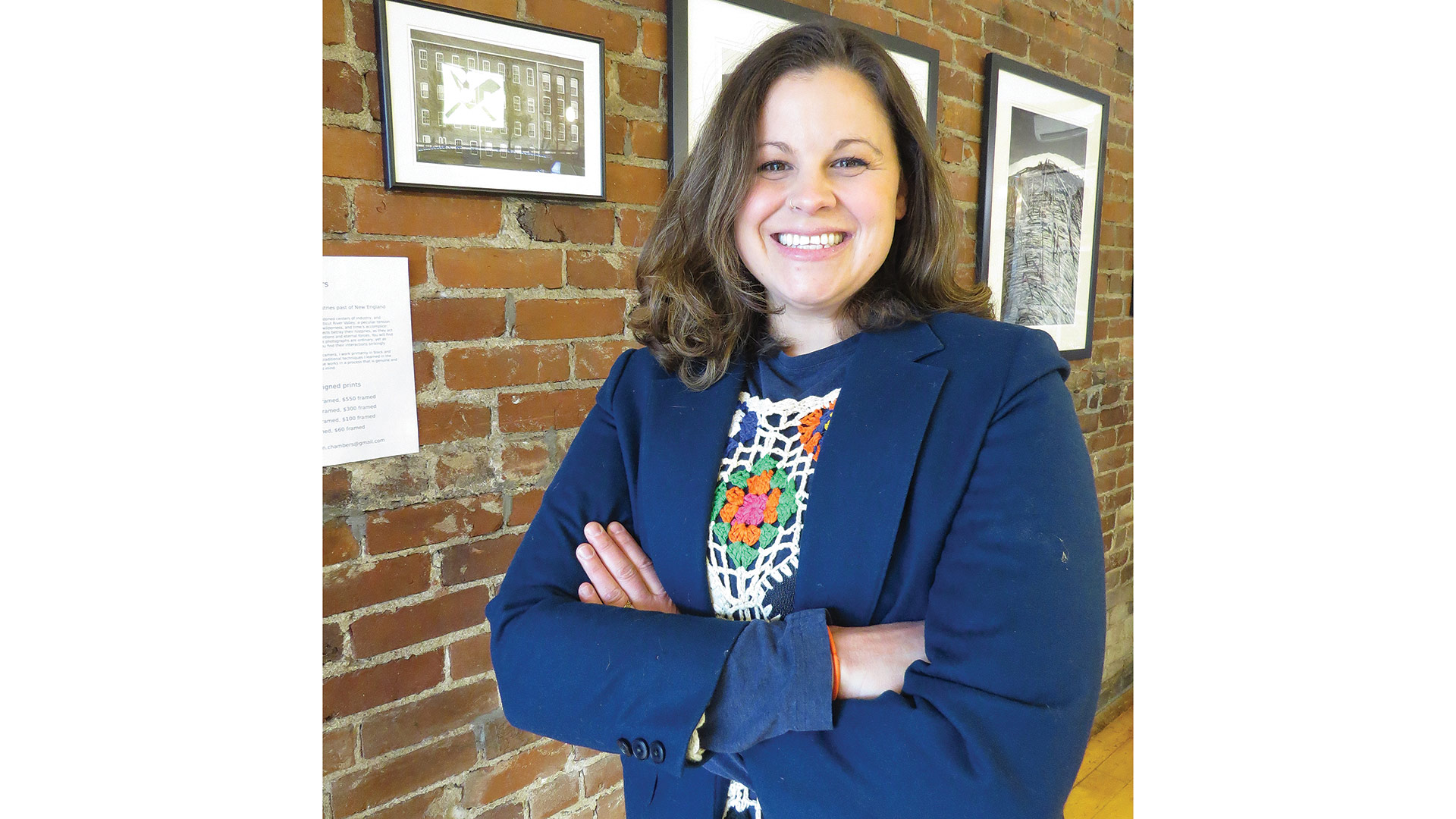Selling Points
As he surveys the scene in Western Mass., especially the ongoing focus on encouraging entrepreneurship and helping startups get to the next level, Charlie D’Amour says he can see some parallels to when his father, Gerry, and uncle, Paul, were getting started in Chicopee nearly 80 years ago with a venture that would eventually become known as Big Y.
But this current surge in entrepreneurship is different in some respects from than the one in the mid-’30s, he told BusinessWest, adding that it is deeper and more diverse. And it holds enormous promise for the future of the region in terms of job creation and the vibrancy of individual communities.
“I continue to be impressed by the fact that we have a diverse and growing class of new entrepreneurs,” D’Amour noted. “Through the commitment of the EDC, the commitment of other organizations, and the commitment of anchor institutions in the area, if we can continue to grow, develop, nurture, and encourage these entrepreneurs, it’s only going to put us in a great position.
“That’s part of what gives me some optimism for the economy of our region — to see this growth in entrepreneurship,” he went on. “This is an interesting group of young entrepreneurs, and it’s a diverse group, and that speaks to where our future is going to be.”
Entrepreneurship and the prospects for more of it comprise one of many subjects touched on by D’Amour and other representatives of the Western Massachusetts Economic Development Council (EDC) during a wide-ranging discussion of the issues facing the region as the calendar turns to 2023.
“I continue to be impressed by the fact that we have a diverse and growing class of new entrepreneurs. Through the commitment of the EDC, the commitment of other organizations, and the commitment of anchor institutions in the area, if we can continue to grow, develop, nurture, and encourage these entrepreneurs, it’s only going to put us in a great position.”
Charlie D’Amour
D’Amour is a long-time member of the EDC and member of its executive committee. Others joining the discussion were Rick Sullivan, president and CEO of the EDC; Tricia Canavan, CEO of Tech Foundry and current EDC board chair, and relatively new board member Cesar Ruiz, president and CEO of Golden Years Home Care Services.
Together, they addressed subjects ranging from workforce issues to marketing of the region to the prospects for bringing more jobs to the area.
Overall, as the new year begins, those we spoke with are optimistic about the region and its fortunes, but there are reasons for concern, especially when it comes to workforce (more on that later), an issue touched on by many in this special Economic Outlook section.
“I’ve seen some real opportunities with some investments that I do believe will be coming with the new governor’s administration in terms of broadband and internet access,” Sullivan said. “There is a digital divide, in our urban communities but also in our rural communities, and I think there’s a real opportunity there with a significant investment by the state and federal government to make those final connections and finally bring high-speed broadband to people’s homes and businesses; that’s a real opportunity for us.
“And I also some see some significant investment in the field of cybersecurity, which is an industry that, unfortunately, is probably here for the long run, and we need to be doing a lot of work every single day to stay ahead of the bad guys,” he went on. “With Springfield already being designated as one of the centers of the statewide system … that’s a real opportunity for us in terms of both workforce and working with our municipalities and particularly with our higher-ed institutions, so I’m very optimistic about the opportunities that are going to present themselves for this region in 2023.”
D’Amour agreed.
“The good news is that the economy of Western Massachusetts, with its diversity and whatnot, has proven to be somewhat resilient, from what I’ve seen,” he noted. “Though I anticipate a downturn in the economy, a slowing of the economy, I do expect that we’ll be able to weather it fairly well.”
“We’re all experiencing challenges in hiring — we can’t hire fast enough; we can’t hire quality enough within our workforce. Hiring is certainly going to be a barometer for how successful we’re going to be with expanding our business.”
Cesar Ruiz
Canavan concurred, noting that the many lessons learned during the pandemic will serve to make the region’s economy and individual businesses stronger and more resilient.
“The silver lining of the pandemic has been some lessons learned,” she said. “I’ve seen people start to integrate these lessons into their businesses and organizations and into their collaboration in the community. I’m really excited about progress on diversity, equity, and inclusion efforts; digital equity and access; and additional community alignment. I think we’ve learned the importance of working together. I’m optimistic about Western Mass. — we are going to be resilient, and we’re going to recover from the pandemic, even if there are some additional bumps coming our way.”
Working Things Out
One of those bumps is likely to be a continuation of very challenging times when it comes to workforce and companies attracting — and then retaining — the talent they need to grow and prosper. Those we spoke with said this is easily the biggest challenge moving forward and perhaps the most difficult problem to solve.
Ruiz, whose industry, home care, has been particularly hard hit by the workforce crisis, said workforce issues are more than an annoyance — they are hindering the growth and progress of companies, including his own.
“In Massachusetts, we have roughly two open jobs for every candidate that’s in the market. This is a great time for people who may not have been able to access those jobs previously to get training, to get education, and to seize those opportunities.”

Tricia Canavan
“We’re all experiencing challenges in hiring — we can’t hire fast enough; we can’t hire quality enough within our workforce,” he noted. “Hiring is certainly going to be a barometer for how successful we’re going to be with expanding our business.”
He said individual sectors and specific businesses are, out of necessity, forced to be creative when it comes to putting more talent into the pipeline. Golden Years, for example, is collaborating with area colleges to help ready them for careers in healthcare.
Still, the problem is acute, and he’s talking with U.S. Rep. Richard Neal and others about ways to bring more people from other parts of the world into this country to work.
“Using foreign workers is nothing new — our resort areas bring them in by the hundreds,” Ruiz noted. “They come here for a six-month period, and there are certain obligations as an employer that we have to meet to tap that source. But we have to come with creative ways to tap these resources.”
Canavan concurred, and noted that the current workforce challenge presents a huge opportunity to engage those who are currently not engaged in education or work.
“That’s one of the big opportunities for us at this moment in time,” she said. “In Massachusetts, we have roughly two open jobs for every candidate that’s in the market. This is a great time for people who may not have been able to access those jobs previously to get training, to get education, and to seize those opportunities.”
“Our population has basically been flat, and in some areas, it’s declining. If we’re going to be vibrant, there has to be some growth; you need to grow to survive.”
Rick Sullivan
D’Amour agreed, and said his company has been creative and also diligent in addressing the problem.
“Our staffing has improved — it’s much better than it was a year ago or a year and a half ago,” he noted. “But part of it is because we worked at it — we’ve addressed it proactively. We didn’t just put a sign in the window saying ‘now hiring.’ We’ve been a little bit more deliberate, a little bit more strategic, and a little bit more focused about it, and those are the kinds of things that we’re going to need moving forward.”
Elaborating, he said workforce issues require both creativity and a lengthy time horizon, meaning measures that will fill the pipeline with workers for the long term. And the focus needs to be on education.
“From early education to higher education, we need to make sure that we’re bringing our kids and our young people along so that they can be the workforce of the future,” he told BusinessWest. “If we don’t have that, we can’t do a lot of the things that we aspire to. We need to reach into these various communities and make sure that young people have the skills they’re going to need to be successful; that’s where our workforce is going to come from, and those are the kinds of things we have to do.
“I know that’s an area of focus for the EDC, and I know it’s an area of focus for the anchor institutions and many individual companies,” he went on. “We’re not going to get there in a year, but we need to start now; it’s probably a little bit overdue.”
Being Positive
As noted earlier, those we spoke with could find plenty of reasons for optimism concerning 2023 and beyond in this region. Collectively, they mentioned everything from the Victory Theatre project in Holyoke (Ruiz is among the many involved in that effort) to the growing number, and diversity, of new businesses being started in this region, especially within the Hispanic and African-American communities; from the strong education and healthcare sectors to the quality of life here and the opportunities presented by remote work for people to live in this region and work wherever they desire.
Meanwhile, those we spoke with said there are real opportunities to grow certain business sectors in this region — from cybersecurity to clean energy to water technology — with the area’s higher-education institutions taking lead roles in each one.
Sullivan said another often-overlooked or forgotten sector showing promise is manufacturing, what he called the “invisible backbone” of the region’s economy.
“Most of our manufacturers were classified as essential employers during the pandemic, so they were able to continue operating,” he noted. “They proved to be really flexible and able to pivot, in some cases even manufacturing PPE and other products that were not part of their portfolio before COVID. That flexibility, if you will, served them well, and now they’re well-poised for growth, and you’re starting to see them make significant investments.
“Whether it’s Advance Manufacturing, Boulevard Machine, or Advance Welding in Springfield, they’re making investment in their own facilities and their own people, and they’re creating jobs — and jobs that will exist well into the future because of the work they’re doing and the contractors that they have, whether it’s the Department of Defense or the Department of Transportation or healthcare,” he went on. “And these manufacturers have recognized that, while this region may not be the cheapest in terms of power or the cheapest in terms of taxation, we are the best when it comes to workforce.”
D’Amour agreed, and said another aspect of the local economy that is often overlooked is agriculture.
“We’re the garden of New England here in Connecticut River Valley, and there are a lot of young farmers in this region that are doing great stuff,” he said. “Agriculture and food products are an important part of our economy, and it adds to the diversity of the economy in our region. Having fields and orchards is also why many people like to live here; it leads to the whole genus of our community and what makes Western Mass. so special.”
Another priority for the region, Sullivan said, is to better leverage its many assets in higher education.
“Many of the other parts of the country, and even the eastern end of this state, really market the presence of higher ed,” he said. “And we have world-class institutions here; whether it’s the flagship campus for UMass or Smith or Mount Holyoke or Bay Path, the cohort of higher education we have here is really significant. And when we talk about workforce, the students that are sitting in the classrooms at the Elms and AIC and the other institutions are the workforce that everyone is looking for, and I really believe that economic vitality and higher ed are entwined tighter than they ever have been before.”
Work to Be Done
While there are reasons for optimism, there are also some concerns and priorities for the months and years to come, said those we spoke with.
Sullivan noted, for example, that the region — known in the banking sector and many others as a ‘no-growth’ area — certainly needs a growth strategy.
“Our population has basically been flat, and in some areas, it’s declining,” he told BusinessWest. “If we’re going to be vibrant, there has to be some growth; you need to grow to survive. We can absolutely sell our cost of living and quality of life here, but we need to have the housing for people to move into, and they need to be able to work from home or do their coursework from home, which means, again, that we have to make that investment in broadband and the internet across our region so we can take advantage of that opportunity.
“When people discuss work/life balance and what they want for their families, this lands in a sweet spot for us,” he went on. “That’s who we are; we can sell work/life balance and quality of life, as long as we have all the components. They’re not all going to happen in a month or a year, but there needs to a positive trajectory on all of those things.”
D’Amour agreed, noting that the region has a number of sellable assets, from location to transportation infrastructure to relatively inexpensive (and often green) power, as well as higher education. One priority moving forward is to more aggressively sell these assets and market the region.
“Our challenge has always been telling our story,” he said. “We have not participated as fully as we could have or should have in the economic boom that Eastern Mass. has had. How do we get some of the business community in Eastern Mass. to focus on us instead of going to Southern New Hampshire, or Rhode Island, or wherever?”
Canavan agreed. “We are, in some ways, our own worst enemy when it comes to not telling our story — or appreciating where we live,” she said. “And we do have a lot of assets here, starting with diversity; we’re very lucky to have people from all over the world here, people with different perspectives — that is a real asset. I also think we’re small enough to be agile and to pilot things … we’re like the scrappy player who can try new things, and that’s very exciting.”
Lastly, Sullivan said he is hopeful, and confident, that the state’s new governor, Maura Healey, will not just “talk about how we care about Western Mass.,” but make some significant investments in the region.
“And I think you’ll see them, whether it’s vocational education or community colleges, or broadband or cyber or clean energy,” he said. “I think that there’s an opportunity to make very strategic, intentional investments in Western Massachusetts that will allow it to grow.”















